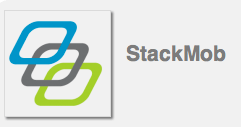StackMob, the backend service provider for mobile developers, has big news today: it’s now available on Android. With today’s launch (still in private beta – see below for invites), StackMob will extend full access to its services to Android developers, including an open-sourced Android SDK and support for Android Push Notifications.
The platform, which MG Siegler once dubbed the “Heroku for Mobile” (before StackMob partnered with Heroku!), is a cloud-based system that aims to address all the backend needs of mobile developers, including social integration, storage, messaging, API creation, analytics, monetization and more. It’s a flexible, scalable solution that even allows developers to add complex logic to their app using custom code, if need be.
The new Android SDK offers the same features as the iOS SDK, Co-founder Ty Amell explains, meaning developers can just send push notifications to a given user by username, and not have to worry about what device they’re using at the time. StackMob will handle that part.
The push notifications feature works on Android devices running 2.2 and up with this release, which Amell says accounts for around 78% of devices on the Android platform.
Developers interested in signing up for the StackMob private beta for Android can do so from here: http://www.stackmob.com/tc-android. There are 300 slots available.
Going forward, StackMob plans to further build out its analytics system with more detailed app analytics and API analytics, we’re told. It recently overhauled its backend, changing the architecture from a proprietary system to the open source Flume, mainly because the company likes to support open source and because…well, why built your own system where there’s one you can use? The company still hasn’t publicly announced what its pricing situation will be when it exits private beta, but developers in the private beta can test the platform for free.
StackMob previously raised $7.5 million in May in a round led by Trinity Ventures, with participation from existing investors, Harrison Metal and Baseline Ventures. It now has 15 employees based in San Francisco, but is looking to hire more.
